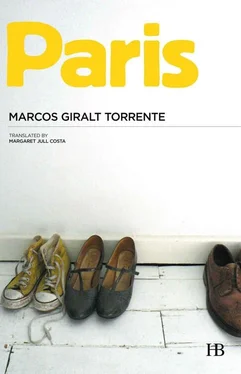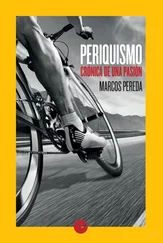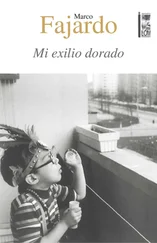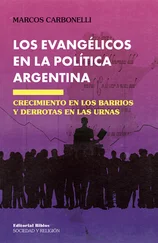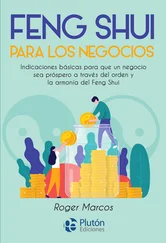Marcos Giralt Torrente - Paris
Здесь есть возможность читать онлайн «Marcos Giralt Torrente - Paris» весь текст электронной книги совершенно бесплатно (целиком полную версию без сокращений). В некоторых случаях можно слушать аудио, скачать через торрент в формате fb2 и присутствует краткое содержание. Год выпуска: 2014, ISBN: 2014, Издательство: Hispabooks, Жанр: Современная проза, на английском языке. Описание произведения, (предисловие) а так же отзывы посетителей доступны на портале библиотеки ЛибКат.
- Название:Paris
- Автор:
- Издательство:Hispabooks
- Жанр:
- Год:2014
- ISBN:9788494228452
- Рейтинг книги:5 / 5. Голосов: 1
-
Избранное:Добавить в избранное
- Отзывы:
-
Ваша оценка:
- 100
- 1
- 2
- 3
- 4
- 5
Paris: краткое содержание, описание и аннотация
Предлагаем к чтению аннотацию, описание, краткое содержание или предисловие (зависит от того, что написал сам автор книги «Paris»). Если вы не нашли необходимую информацию о книге — напишите в комментариях, мы постараемся отыскать её.
Paris — читать онлайн бесплатно полную книгу (весь текст) целиком
Ниже представлен текст книги, разбитый по страницам. Система сохранения места последней прочитанной страницы, позволяет с удобством читать онлайн бесплатно книгу «Paris», без необходимости каждый раз заново искать на чём Вы остановились. Поставьте закладку, и сможете в любой момент перейти на страницу, на которой закончили чтение.
Интервал:
Закладка:
The time of year in which the most evocative sensations and moments are concentrated — where the bellows of memory fills up most often and leaves the fewest empty spaces — coincides with the arrival of summer. My image of my mother from July to September grows clearer, more distinct. In the winter, whole hours go by without our seeing each other; there are certain times of day when our lives barely touch, and this only makes the fog grow denser. In the summer, we spend all day together, and the frontiers between the hours dissolve, which means that, even at a distance, I know where she is and how she’s using her time; I can see her reading, sunbathing, sitting and staring into space, or watching television just for the pleasure of it and not because I’m there and she wants to make the most of having that moment by my side. In the summer, her image grows in importance and becomes, were that possible, even more indispensable. We used to plan the summers together months in advance, and apart from the few visits we received from my father or some friend or other, we spent the time mostly alone. Always in different places, always in houses that my mother would rent for two months and that she would enter like a whirlwind in order to make everything new, moving furniture around, and taking with us sheets, towels, and even pillows from our own apartment in Madrid. Always that same unchanging ritual repeated year after year, until I began to spend the summers on my own. First, two weeks in La Coruña. Then a plane or a train or a day’s journey by car, and once we reached our destination, a couple of days were spent cleaning (everything had to be thoroughly washed, all trace of the previous inhabitants expunged, so as to make the house our own), and at last, two whole months lay ahead of us, sixty intense days that ended in the first week of September, when she had to go back to Madrid to sort out the syllabus for the new term and negotiate timetables with her colleagues.
The summers were a performance put on for our benefit alone, and they provide the best summary of those years, the compendium that best illustrates them. The story of our life together could, I believe, be told entirely through those summers without greatly distorting the sequence of events. Firstly, lost in a time when seasons did not yet exist for me and the year was not divided up according to fixed dates, there would be the summers my mother and I spent with my father. They were the only ones the three of us shared, and yet if I try to remember them, it is she, not he, I think of, she is the person who filled my mind with what little of those summers I know, with the few reference points that allow me to imagine them. Almost immediately afterward, albeit separated by a clear boundary, come four or five summers for which my memories are only slightly less hazy, retaining as they do a few images in which my father is always just about to arrive but never does, or only rarely; these are followed by two consecutive summers when my father does not appear and is not expected; one summer that was supposed to be a reunion but ended up being the first that my mother and I spent entirely in the company of my aunt; and lastly, the one that signaled the final rupture, or depending on your point of view, the onset of normality, another summer spent in La Coruña, a summer followed by a long list of summers in which we waited for no one, summers that are distinguishable only by the different decors of the various houses we rented.
That, let us say, is the chronology, the temporal framework as experienced by me. Then there is what was going on inside my mother’s mind, and it is precisely because those summers are the most perfect expression of our very close relationship that they aren’t enough and are of no use to me. My father hardly appears in those summers, and, in a way, he needs to appear for the figure of my mother to make sense. I need to feel my father’s presence, I need to think about him in order to begin to think about her. About my mother without me, not about the two of us putting up with my father, but about my mother alone. About my mother and what she hoped for and didn’t hope for, about my mother being happy and sad, satisfied and dissatisfied, or simply accepting the way things are, perhaps finding compensations for her strange life, or not even looking for them.
I need my father, I need him to leave prison, I need to start thinking about him.
VIII
My memory grows confused, and I can’t separate that morning from all the ornaments and extras I’ve added over the years, every time I spoke or thought about it. I’m not sure whether what appears in my memory now is a faithful reflection of what really happened or if the truth has become contaminated or modified by later events or by how I’ve assimilated those events as my personality has developed. I don’t even know why I keep remembering it. I mean, we often forget crucial events and remember others that are far less significant. We remember details such as the fact that we were wearing a new sweater on a certain day, or that it was a Tuesday, and we forget, on the other hand, that we received a slap in the face or that our father returned from the doctor’s and shut himself up in his bedroom never to come out. Often our memory of important things is built precisely on the banal, often it’s the memory of something that had no apparent effect on us that brings with it the memory of what endures, of what is important now, but which, when it happened, was not important, or did not appear to be.
So, for example, what I remember most about the morning my father came out of prison is our car, a battered, much-dented, pale blue Dyane 6, which lasted us for years and which, along with other peculiarities, such as frequent stalling (always in the most inopportune places, and usually with half a dozen cars behind us sounding their horns), had a tendency to slow down whenever we were trying to pass someone. It would start well, but after that initial burst of speed, the engine would flood, and however hard my mother pressed down on the accelerator and however slowly the other car was moving, it was impossible to overtake it unless we both helped it along by jerking compulsively back and forth in our seats. Something similar would happen at bends in the road, which we could only get around if we leaned hard into them. Apart from these comical situations or the frequent rages this triggered in other drivers, the main consequence was that my mother did not feel very safe driving it and used it mainly for going to school and back. If we were traveling around the city together, she preferred to take a taxi, and so I rarely rode in the car, apart from at vacation time, when we left Madrid to go to her sister’s or to whichever house we had rented for the summer. Since whole months could go by without my even knowing where it was parked, the fact that we broke the rule one day was enough to fix it in my memory forever.
That morning, which was a weekday, my mother had come into my bedroom to wake me up slightly earlier than usual, and while she was doing so and giving me her usual fond, morning peck on the cheek, she told me not to put my uniform on, because neither of us would be going to school, and that I should try to dress nicely, as I knew she liked me to. She then urged me to hurry up and, still without telling me the reason for this change in routine, left the room. We had breakfast together, as we did every day, and when I asked what was going on, she said she would tell me later, that it was a surprise. She didn’t seem nervous, just slightly more serious than usual. I suppose it was that she was about to take a difficult step and that, although she had made up her mind and there was now no turning back, she was still unsure quite how to deal with it. While she took charge of washing the dishes and putting the leftovers in the fridge, I went back to my room, where I dressed myself appropriately, in almost exactly the same clothes I wore each day for school, except that everything was of the very best quality and carefully ironed: gray, wool flannel pants rather than cheap flannelette ones; a thick, navy blue turtleneck rather than the thinner V-neck sweater I wore for school; lace-up shoes with heel plates rather than my usual moccasins, which were worn at the toes and heels. . As we were heading for the door, she warned me that it would probably be cold where we were going and advised me to take my blue balaclava with me, just in case. Not until long after we had gotten into the car and begun the journey did I have any idea where we were going, and she made no mention of my father. It should have occurred to me that anything so cloaked in mystery must necessarily involve him. And yet the idea never entered my head. During those initial minutes in the car, while my mother was busy trying to dodge the issue and talking about things I’ve since forgotten, and while I was listening to her, and she could see that I was listening — although her dilatoriness was as obvious as my impatience for her to get to the point — the only likely destination I could think of was La Coruña. I thought of my Aunt Delfina and wondered if something had happened to her, if she was sick or even dead. There followed an even less reassuring silence, and it was only after my mother had sat sunk in thought for a while, apparently incapable of speech, and as the idea of some dreadful tragedy was taking definite shape inside my head that she took her eyes off the road and finally looked at me and dared to tell me where we were going. It was one of those clear, crisp winter days in Madrid, with a few white clouds suspended in the bluest of blue skies; we had left behind us the monstrous Arco del Triunfo and were driving, with heavy traffic ahead of us, to the Puerta de Hierro exit.
Читать дальшеИнтервал:
Закладка:
Похожие книги на «Paris»
Представляем Вашему вниманию похожие книги на «Paris» списком для выбора. Мы отобрали схожую по названию и смыслу литературу в надежде предоставить читателям больше вариантов отыскать новые, интересные, ещё непрочитанные произведения.
Обсуждение, отзывы о книге «Paris» и просто собственные мнения читателей. Оставьте ваши комментарии, напишите, что Вы думаете о произведении, его смысле или главных героях. Укажите что конкретно понравилось, а что нет, и почему Вы так считаете.
